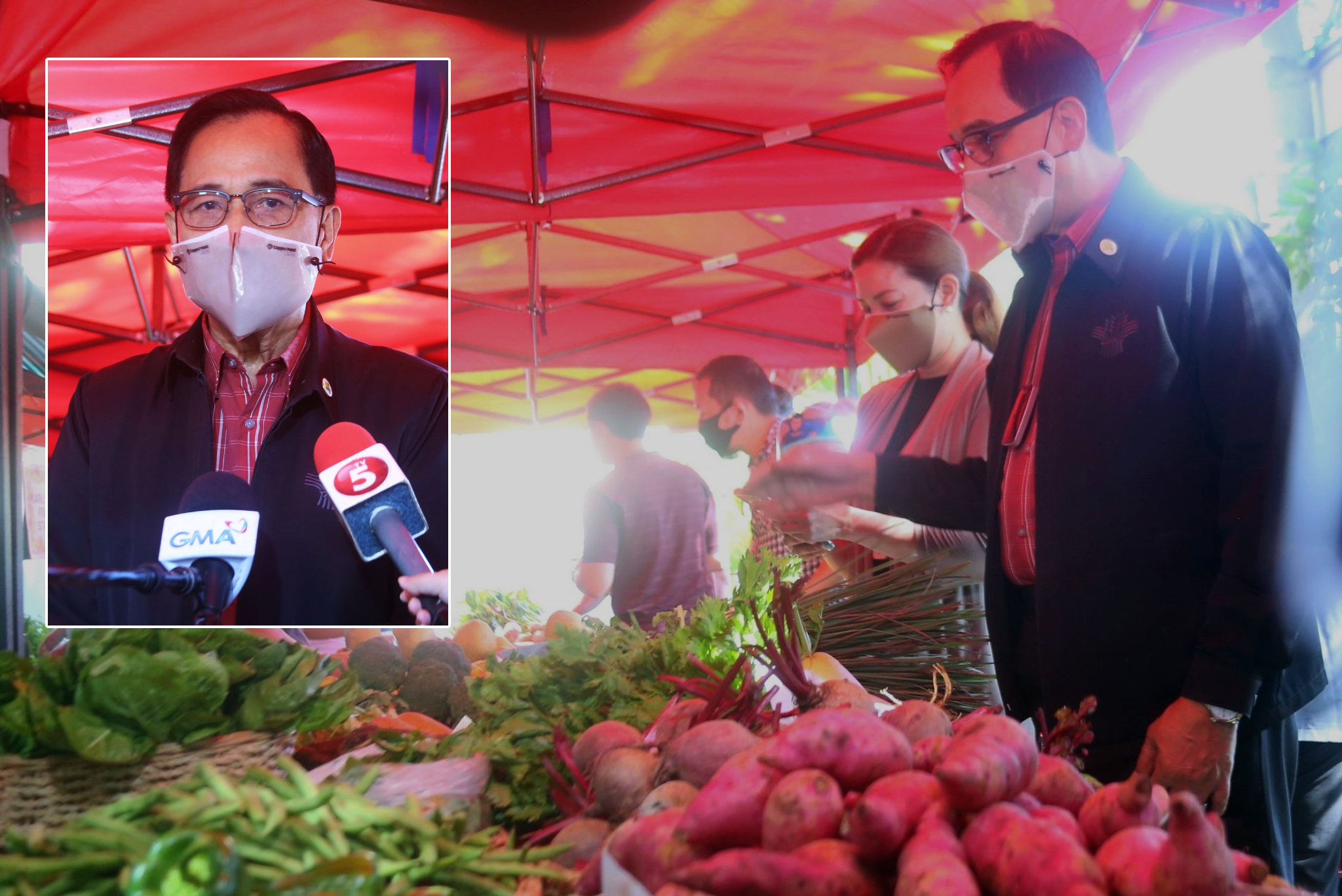
Following the declaration of State of Calamity in Luzon by President Rodrigo Roa Duterte, Agriculture Secretary William Dar announced that the Department of Agriculture (DA) will implement a price freeze on basic agricultural commodities.
DA’s Agribusiness and Marketing Assistance Service (AMAS) rolled out another Kadiwa ni Ani at Kita on November 18, 2020, at the ADC to stabilize prices and ensure accessibility of affordable, nutritious food in Metro Manila.
“The President’s declaration of a State of Calamity is a big welcome sa atin sa agrikultura, kasi mas may ngipin na tayo sa pagmomonitor ng prices. This means the Suggested Retail Price (SRP) has to be sustained. Kung ano ang presyo bago nagbagyo, iyon din ang presyo na ipapatupad namin,” Dar said.
As such, the agri chief urged the Bantay Presyo Task Force (BPTF) to strictly monitor that wet markets and other platforms are following the government’s SRP.
“The full force of the law is in effect. Kung tayo ay sumusuway, ang batas ang ating kalaban, meaning dapat sundin natin ang intents and purposes ng price freeze. Sa gayon, ang presyo bago nagka-bagyo ang masusunod,” Dar warned.
The Kadiwa at the ADC, features frozen meat products sold at a much lower price than the suggested retail price.
Ground Pork – P170/ kilogram
Menudo Cut – P208/ kilogram
Pork Pigue – P220/ kilogram
Pork Belly (liempo) – P260/ kilogram
Pork Chop – P220/ kilogram
Pork Kasim – P220/ kilogram
Pork Pata sliced – P115/ 750 grams
Sinigang Cut – P99/ kilogram
Pork Samgyupal – P280/ kilogram
Beef Cubes – P290/ kilogram
Ground Beef – P208/ kilogram
Shank – P280/ kilogram
Kneecap – P99/kilogram
Beef Samgyupsal – P350/ kilogram
Chicken Adobo Cut – P99/ 750 grams
Adobo Cut (regular) – P208/ kilogram
Siling labuyo – P170/ kilogram
Red onion – P100/ kilogram
“Kadiwa will always be a better marketing platform to link producers to the consuming public,” Dar said.
“Tutulong tayo sa pag-maintain ng presyo at pag-mobilize ng mga produkto. With Kadiwa mobilization and facilitation, we will bring the producers and the main suppliers of these commodities direct to the public,” he added. ### (Kristel Merle, DA-AFID)













